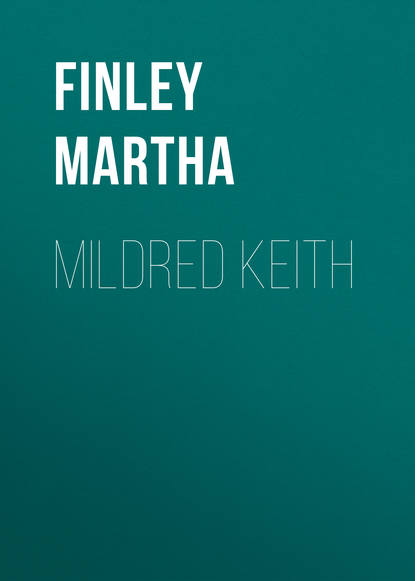По всем вопросам обращайтесь на: info@litportal.ru
(©) 2003-2024.
✖
Mildred Keith
Настройки чтения
Размер шрифта
Высота строк
Поля
Then they visited the town, saw some Indians and bought curious little bark baskets ornamented with porcupine quills, blue, red and white, and filled with maple sugar; moccasins, too, made of soft skins and heavily trimmed with bead work, all manufactured by the Indians.
The young Keiths were made happy with a pair of moccasins apiece from their father, bark baskets from their mother and aunt, and unlimited maple sugar from their friend Mr. Carr.
They returned to the ship tired but full of content.
They were as usual early on deck the next morning, a little before the rising of the sun, for they "liked to see him come up out of the water."
"How very still it is! hardly a breath of air stirring," Mildred was saying to her father as Edward Wells drew near the little group, all standing together looking eagerly for the first glimpse of the sun's bright face.
"Yes, we are becalmed," said Mr. Keith.
"And very possibly may be detained here for several days in consequence," added Edward, greeting them with a cheerful good-morning. "In that case we will have an opportunity to explore the island. May I have the pleasure of being your guide in so doing?"
"Do you mean all of us?" queried Cyril.
"Yes, my man; if you will all go?" answered the sailor lad; but the glance of his eye seemed to extend the invitation to Mildred in particular.
"O father, can we? can we?" chorused the children.
"We will see;" he said. "Now watch or you'll miss the sight we left our beds so early for."
The matter was under discussion at the breakfast table and afterward, and it was decided that all might go ashore, but that the walk under contemplation was too long for the little ones.
Ada Keith was the youngest of that family who was permitted to go; but others joined them and Edward found himself at the head of quite a party of explorers.
Ada came back looking heated, weary and troubled. "O mother," she cried, with tears in her eyes, "we saw a cave where some Frenchmen were hiding from the Indians and got smoked to death; the Indians did it by building a fire at the cave's mouth, because they couldn't get at them to kill them some other way. Oh, I'm so afraid of the savages; do persuade father to take us all back to Ohio again!"
The mother soothed and comforted the frightened child with caresses and assurances of the present peaceable disposition of the Indians, and at length succeeded in so far banishing her fears that she was willing to proceed upon her journey.
However, the calm continuing, nearly a week passed and many excursions had been made to the island before they could quit its harbor.
At length one day directly after dinner, a favorable wind having sprung up, the good ship weighed anchor and pursuing her westward course passed out of the straits into Lake Michigan.
All night she flew before the wind and when our friends awoke the following morning she rode safely at anchor in the harbor of Chicago.
Though a large city now, it was then a town of less than five thousand inhabitants.
This was the port of the Queen Charlotte and her passengers must be landed, her cargo discharged.
It was with feelings of regret on both sides that her officers and the Keiths parted; Edward Wells taking an opportunity to say in an undertone to Mildred that he hoped they would sometime meet again.
St. Joseph, on the opposite side of the lake, was the next port whither the Keiths were bound. A much smaller vessel carried them across.
They had a rough passage, wind and rain compelling them to keep closely housed in a little confined cabin, and were glad to reach the town of St. Joseph; though they found it but a dreary spot, no grass, no trees, the hotel a large, barn-like, two story building, with the hot summer sun streaming in through its windows without hindrance from curtain or blind; for the rain ceased about the time of their arrival and the sun shone out with fervid heat during the two or three days that they were detained there, resting the Sabbath day and awaiting the arrival of their household goods before ascending the St. Joseph river, on which Pleasant Plains, their final destination, was situated.
There were no railroads in that part of the country then, nor for many years after; I think there was no stage route between the two places; there were no steamers on the river; the best they could do was to take a keel-boat.
The rain had ceased and the sun shone brightly on the rippling, dancing waters of the lake and river, on the little town and the green fields and forests of the adjacent country, as they went on board the keel-boat Mary Ann, and set out upon this the last stage of their long journey.
The boatmen toiled at their oars and the Mary Ann moved slowly on against the current, slowly enough to give our travelers abundance of time to take in the beauties of the scenery; which they, the older ones at least, did not fail to do.
Much of it was unbroken forest, but they passed sometimes a solitary clearing with its lonely log cabin, sometimes a little village. The river flowed swiftly along, clear and sparkling, between banks now low, now high, green to the water's edge.
The sun was nearing the western horizon as, at last, the boat was run in close to shore and made fast, with the announcement, "Here we are, strangers; this here's the town of Pleasant Plains."
Chapter Sixth
"Nor need we power or splendor,
Wide hall or lordly dome;
The good, the true, the tender,
These form the wealth of home."
– Mrs. Hale.
Pleasant Plains considered itself quite a town. It stood high above the river on two plains, the upper familiarly known as the "Bluff." It was laid out in very wide, straight streets, crossing each other at right angles; there were perhaps two hundred dwelling houses, principally frame, but with a goodly proportion of log cabins and a respectable sprinkling of brick buildings.
The county seat, it had its court-house and jail; there were some half dozen stores where almost everything could be had, from dress goods to butter and eggs, and from a plowshare to a fine cambric needle; two taverns, as many blacksmith, shoemaker, and carpenter shops, a flouring mill and a bakery.
Also two churches belonging to different denominations; both frame structures, of extremely plain and unpretentious architecture, with bare walls, uncurtained windows, rough, uncarpeted floors, and rude hard benches in lieu of pews.
No thought of architectural beauty or even of comfort and convenience, beyond that of mere protection from the weather, seemed to have entered the minds of any of the builders here; the houses were mere shells; with no cupboards or closets or the slightest attempt at ornamentation.
Nor was their unsightliness concealed by vines, trees, or shrubbery; almost every one of the beautiful monarchs of the forest once adorning the locality had been ruthlessly felled, and a stump here and there was all that was left to tell of their former existence.
As the keel of the Mary Ann grated on the gravelly shore, a tall figure in rough farmer attire came springing down the bank, calling out in tones of unfeigned joy, "Hello, Keith! Come at last – wife, children, and all; eh? I'm glad to see ye! Never was more delighted in my life."
And the speaker catching Mr. Keith's hand in his shook it with hearty good will, then treating the rest of the party in like manner, as with his and Mr. Keith's assistance, each in turn stepped from the boat.
Mr. George Ward was an old client and friend of Mr. Keith's, who had been long urging this removal.
"I declare I wish I lived in town for a few days now," he went on, "but we're three mile out on the prairie, as you know, Keith. I have my team here, though, and if you like to pile into the wagon, all of you, I'll take you home with me, as it is."
The hospitable invitation was declined with thanks.
"There are quite too many of us, Mr. Ward," Mrs. Keith said, smilingly, "and we want to get into a house of our own just as soon as possible."
"Ah yes, so your husband wrote me; and I've been looking round for you. But the best that's to be had will seem a poor place to you, Mrs. Keith, after what you've left behind in Lansdale."
"I suppose so, but of course we must expect to put up with many inconveniences and probably some hardships even, for the first few years," she answered, cheerfully.
"I'm afraid that's so, but I hope you'll find yourselves paid for it in the long run. Now shall I take you to the Union Hotel? You can't, of course, get into your own house to-night.
"Here, let me carry you, bub," picking up Cyril, "the soil's real sandy here and makes heavy walking."
"If, as I presume from your recommendation of it, it is your best house of entertainment," Mr. Keith said, in reply to the question.
"Yes, sir, there's only one other, and it's a very poor affair," returned Mr. Ward, leading the way.
Mrs. Prior, the landlady, a pleasant-faced, middle-aged woman, with kind, motherly manners, met them at the door with a welcome nearly as hearty as that of their old time friend.











